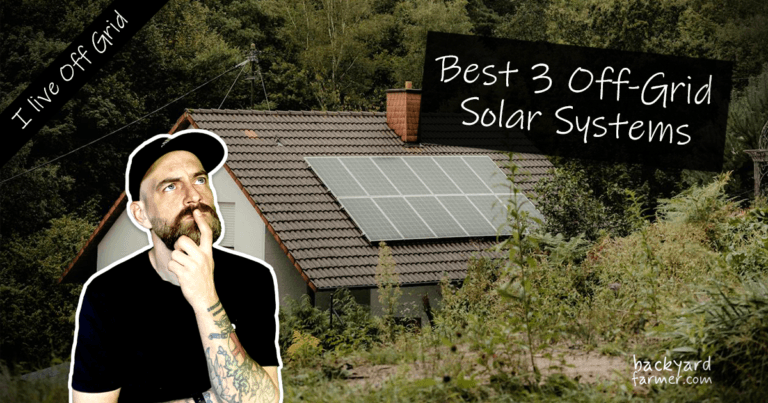Introduction
Off-grid solar systems are revolutionizing how we power our lives by offering a sustainable and independent energy source. These systems are becoming increasingly popular among those looking for eco-friendly solutions for their RVs, remote cabins, and tiny homes.
By investing in off-grid solar systems, you can enjoy:
- Energy independence: Reduces reliance on traditional power grids.
- Sustainability: Lower your carbon footprint with renewable energy.
- Adaptability: Tailored solutions for various use cases.
This guide explores the best off grid solar systems for RVs, cabins, and tiny homes. Discover the top recommendations and learn how to choose the right system for your needs.
What Are Off-Grid Solar Systems?
Off-grid solar systems are standalone power solutions that operate independently of the traditional electricity grid. These systems harness sunlight through solar panels, store energy in batteries for use during nighttime or overcast conditions, and use inverters to convert it into usable electricity.
Key Components of Off-Grid Solar Systems:
- Solar Panels: Capture sunlight and convert it into electricity.
- Batteries: Store energy for use during nighttime or cloudy days.
- Charge Controllers: Regulate the flow of electricity to prevent overcharging.
- Inverters: Convert direct current (DC) from solar panels into alternating current (AC) for appliances.
Whether you need power for an RV adventure, a remote cabin, or a tiny home, these systems provide a reliable and sustainable energy solution.
Benefits of Off-Grid Solar Systems
Off-grid solar systems offer numerous advantages, making them a smart investment for various lifestyles. Here’s why they stand out:
1. Energy Independence
- No reliance on traditional power grids.
- Consistent power supply in remote locations.
2. Eco-Friendly Energy Source
- Reduce carbon emissions by using renewable energy.
- Contribute to a sustainable future.
3. Reliable Power for Remote Locations
- Perfect for areas with limited or no access to grid electricity.
- Dependable during emergencies or outages.
Application-Specific Benefits:
- RVs: Portable and convenient power for road trips.
- Cabins: Long-lasting and weather-resistant energy solutions.
- Tiny Homes: Compact systems designed for limited spaces.
If you’re based in the UK, check out our guide to the best off-grid solar systems tailored for UK homes for sustainable energy independence.
Renogy 200W Solar RV Kit ✅
🛒 Check Price on Amazon | ⭐ Best for First-Time RV Owners
| Specification | Details |
|---|---|
| Power Output | 200W |
| Inverter | ✅ Included |
| Weight | 12kg |
| Dimensions | 36.4 x 26.8 x 1.2 inches |
| Bat |
Why Choose This Kit?
Highly Rated: Trusted by thousands of off-grid RV users.
Beginner-Friendly: Everything you need to get started—solar panels, charge controller, cables.
Compact & Portable: Ideal for RV roofs or off-grid travel.
Reliable Performance: Generates 0.8–1.2kWh/day under ideal conditions.
What’s in the Box?
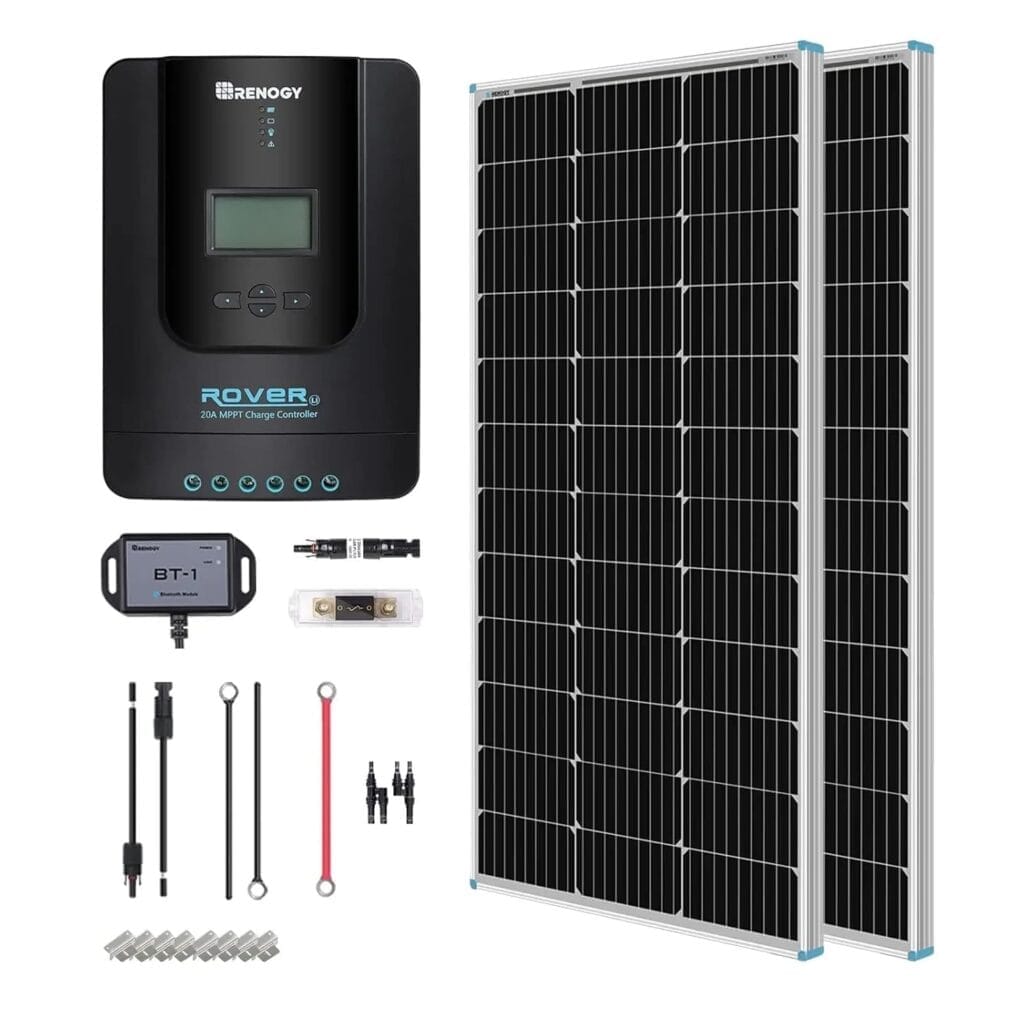
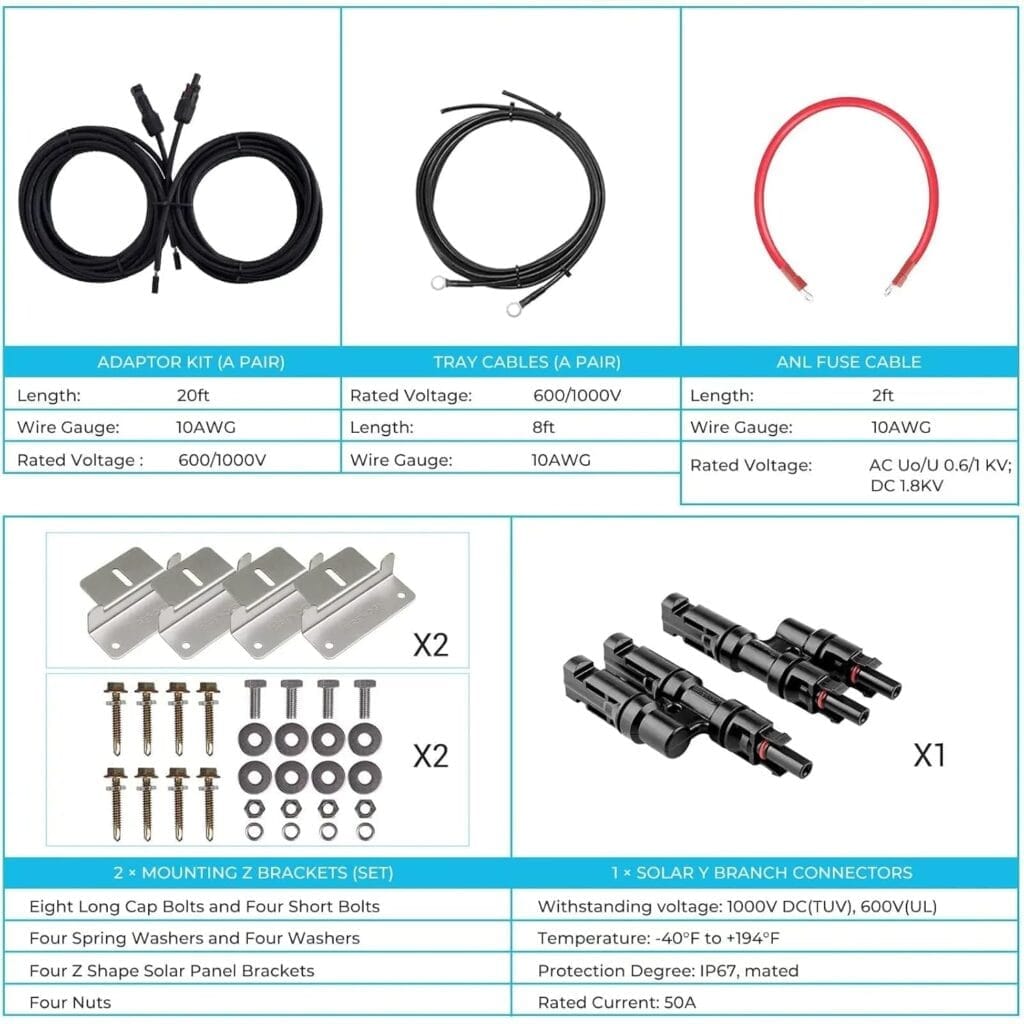
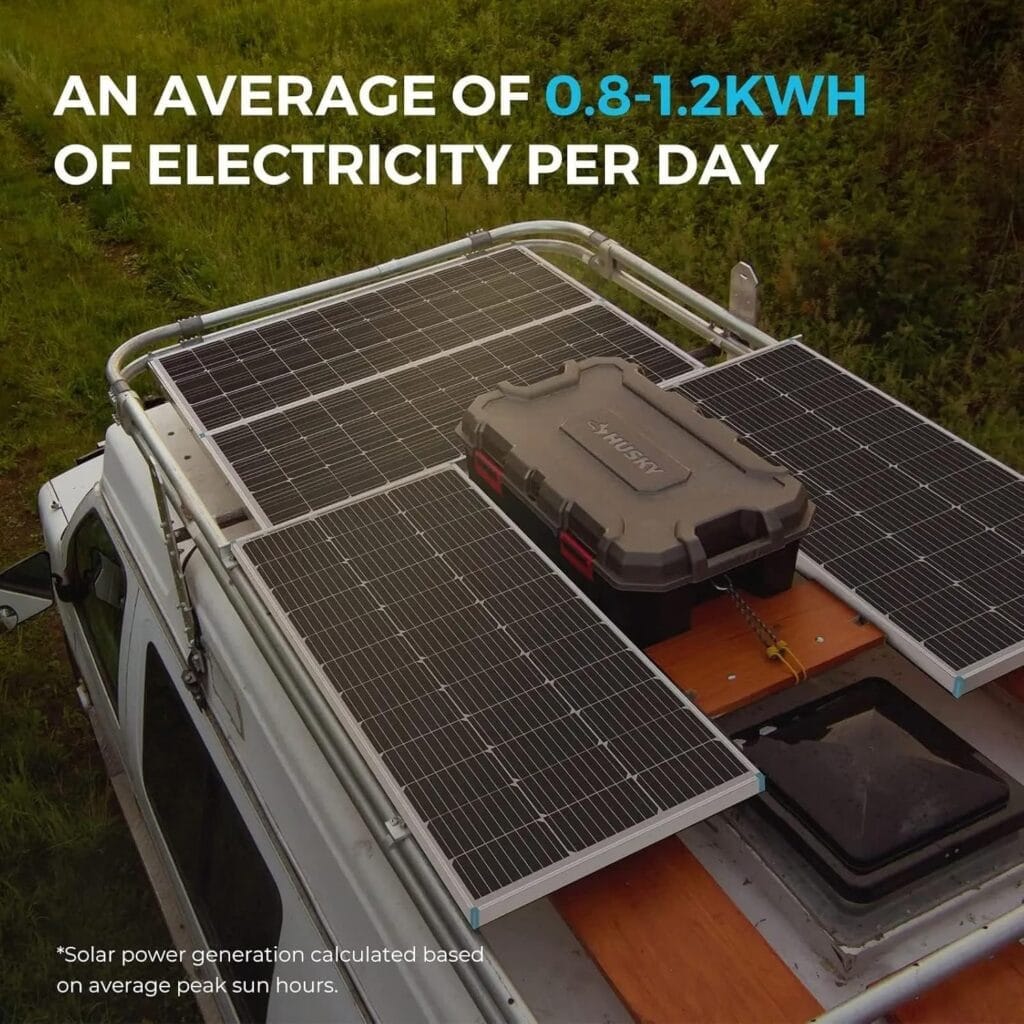
💬 User Review Highlight:
“Perfect kit for my camper van. Simple to install, and it powers my fridge and lights with no issues!”
— Verified Buyer on Amazon
🎯 👉 Check Availability and Price on Amazon – 🔒 Secure link | ✅ EcoFlow-UK Seller | 🚚 Free Delivery Available
EcoFlow Delta 2 + 220W Solar Panel Kit 🔋
🛒 Check Price on Amazon | ⭐ Best for High-Capacity, Fast Charging Power On-the-Go
| Specification | Details |
|---|---|
| Battery Capacity | 1,260Wh |
| Weight | 14kg (unit) / 24kg with panels |
| Charging Time | 1.6 hours (AC input) |
| Output Ports | 6 AC outlets, multiple USB ports |
| Portable Design | ✅ Foldable panel, easy to carry |
Why Choose This Kit?
Fast-Charge Ready: Charges from 0–80% in under 60 minutes with AC.
Solar Ready: Compatible with up to 220W bifacial solar panels.
Powerful Output: Run a mini fridge, lights, phones, laptops, and more.
Trusted Brand: 4.7⭐ rating from 500+ verified buyers.
What’s in the Box?
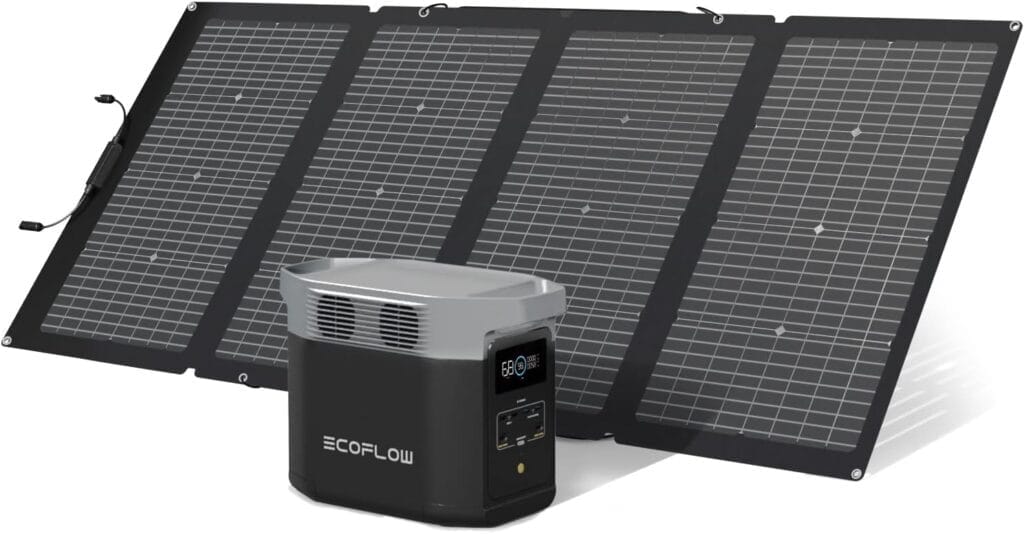
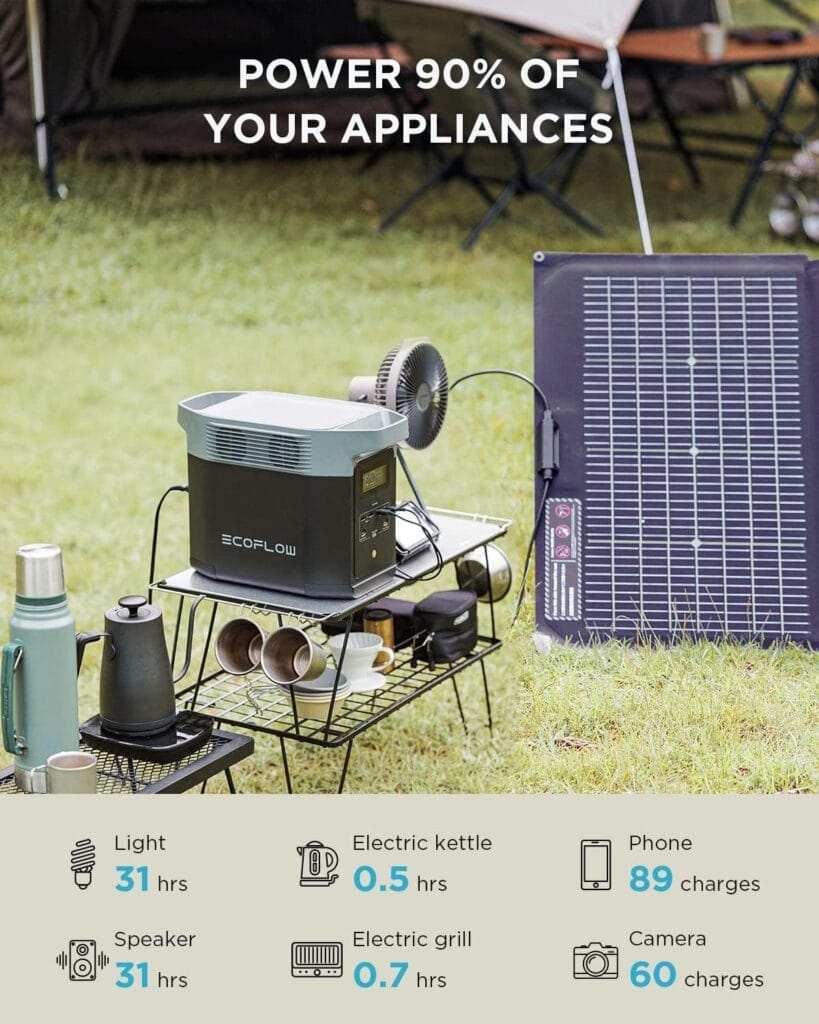
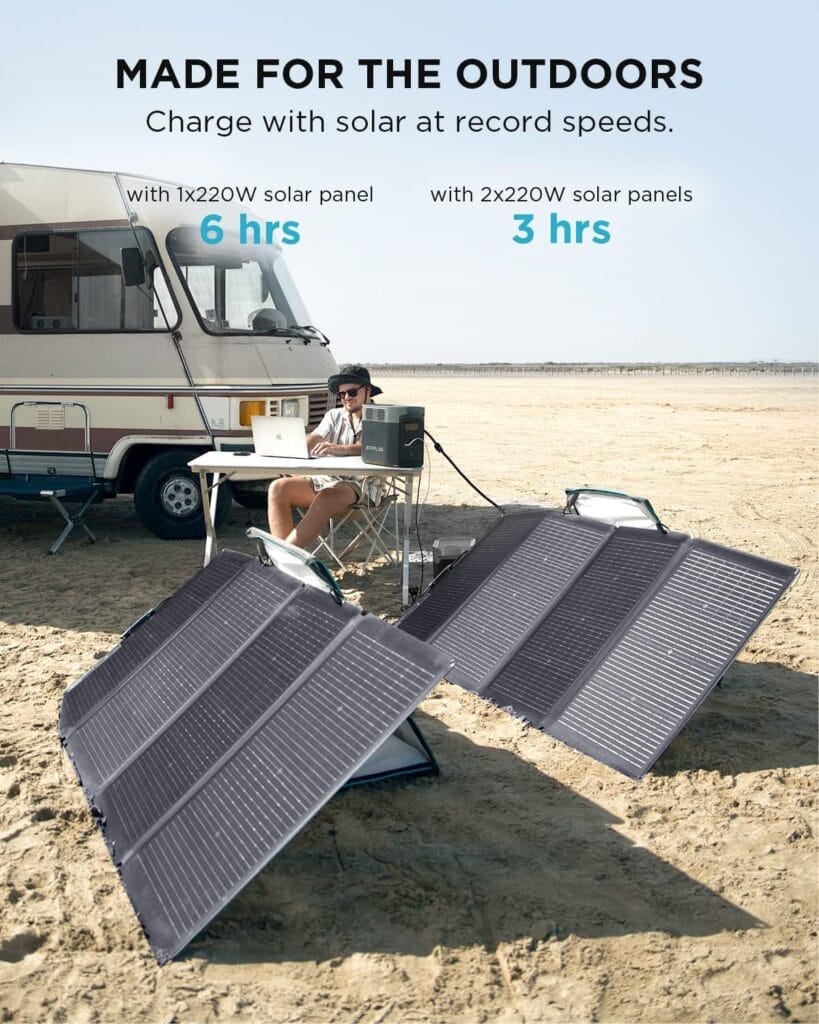
💬 User Review Highlight:
“This thing is a beast! Ran my coffee machine, mini fridge, and recharged my phone—all off-grid for the weekend.”
— Verified Amazon Reviewer
🎯 👉 See Full Product & Price on Amazon – 🔒 Secure link | ✅ EcoFlow-UK Seller | 🚚 Free Delivery Available
Zamp Solar 140W Portable Folding Kit ☀️
🛒 Check Price on Amazon | ⭐ Best for Rugged Portability with Premium Build
| Specification | Details |
|---|---|
| Power Output | 140W |
| Weight | 9kg |
| Durability | Weather-resistant aluminum design |
| Portability | Foldable with built-in handle + case |
| Battery Compatibility | Compatible with 12V battery systems |
Why Choose This Kit?
- Built Tough: Ideal for harsh outdoor conditions and long-term use.
- Simple Setup: Plug-and-play with included controller and pre-attached leads.
- RV Ready: Built-in 3-stage charge controller supports all battery types.
- High Efficiency: Monocrystalline silicon cells for better output.
What’s in the Box?
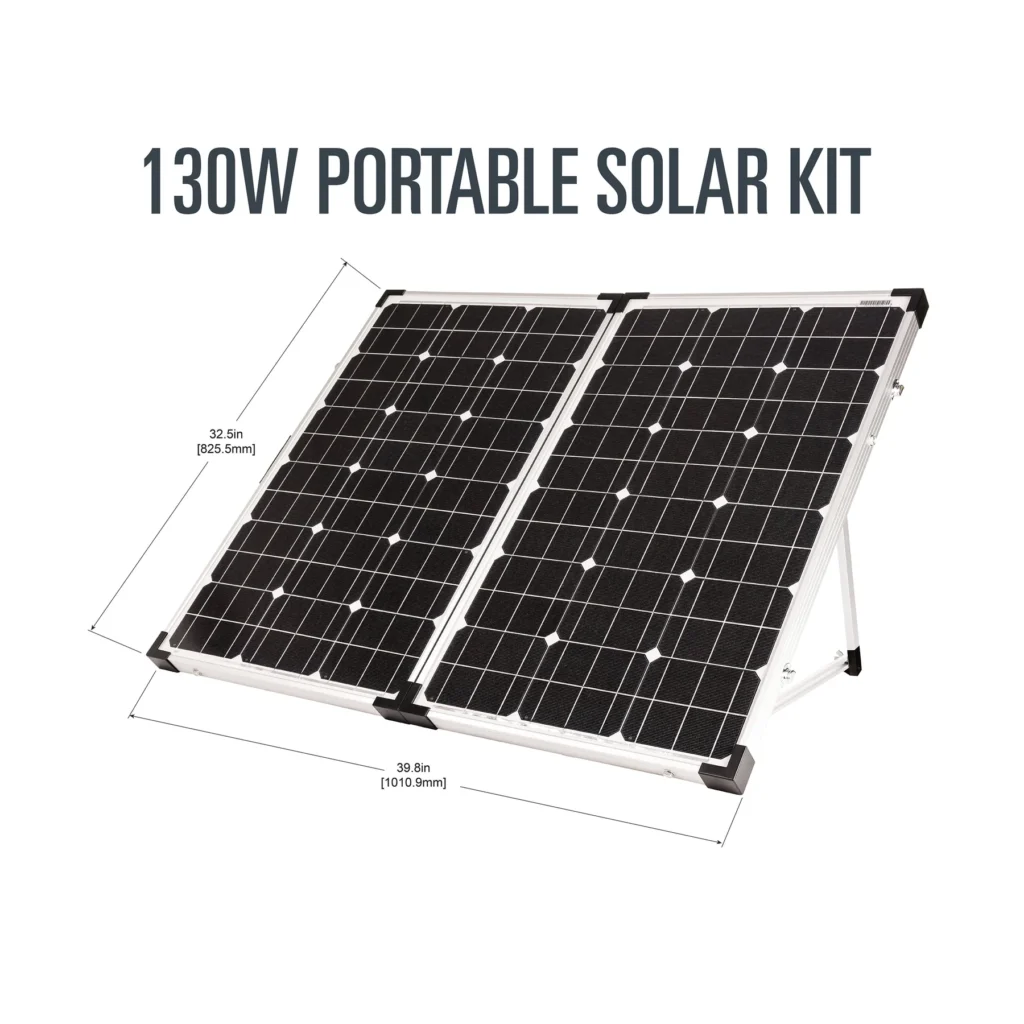
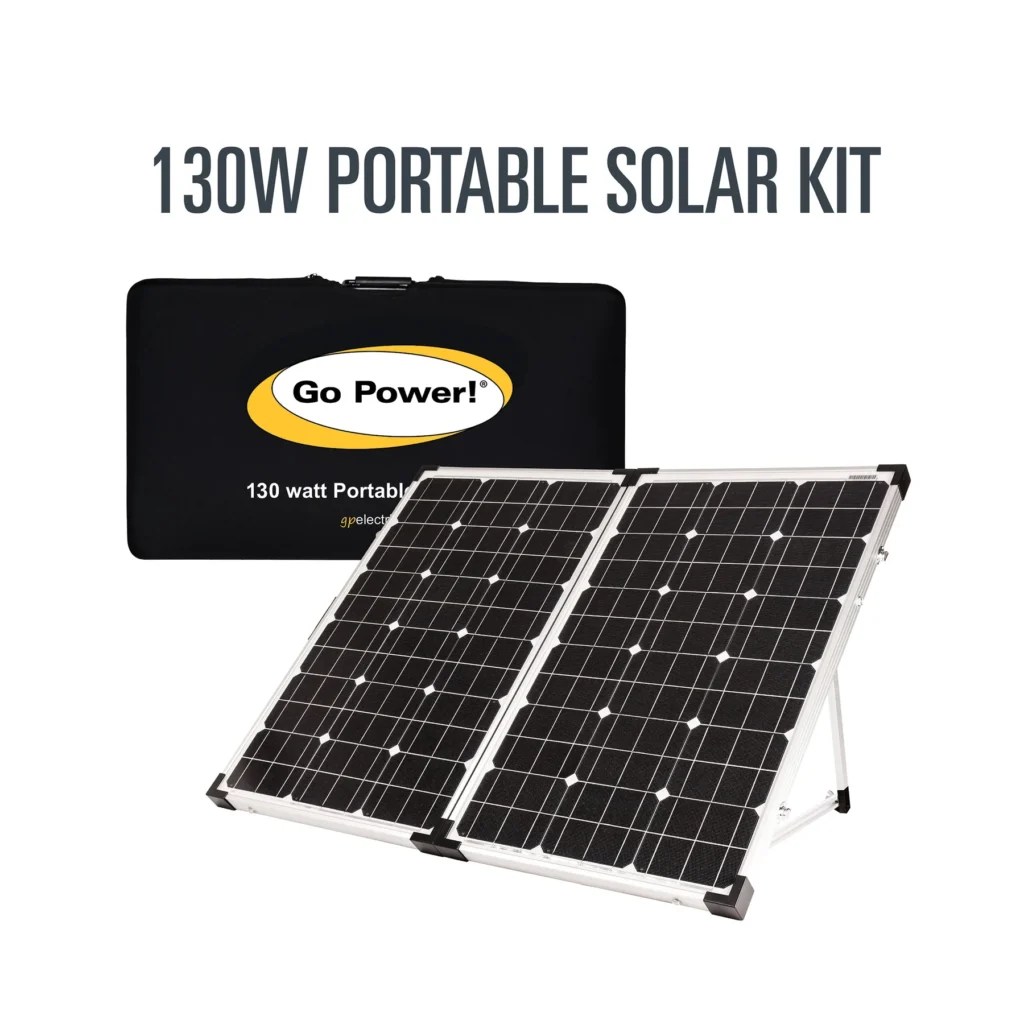
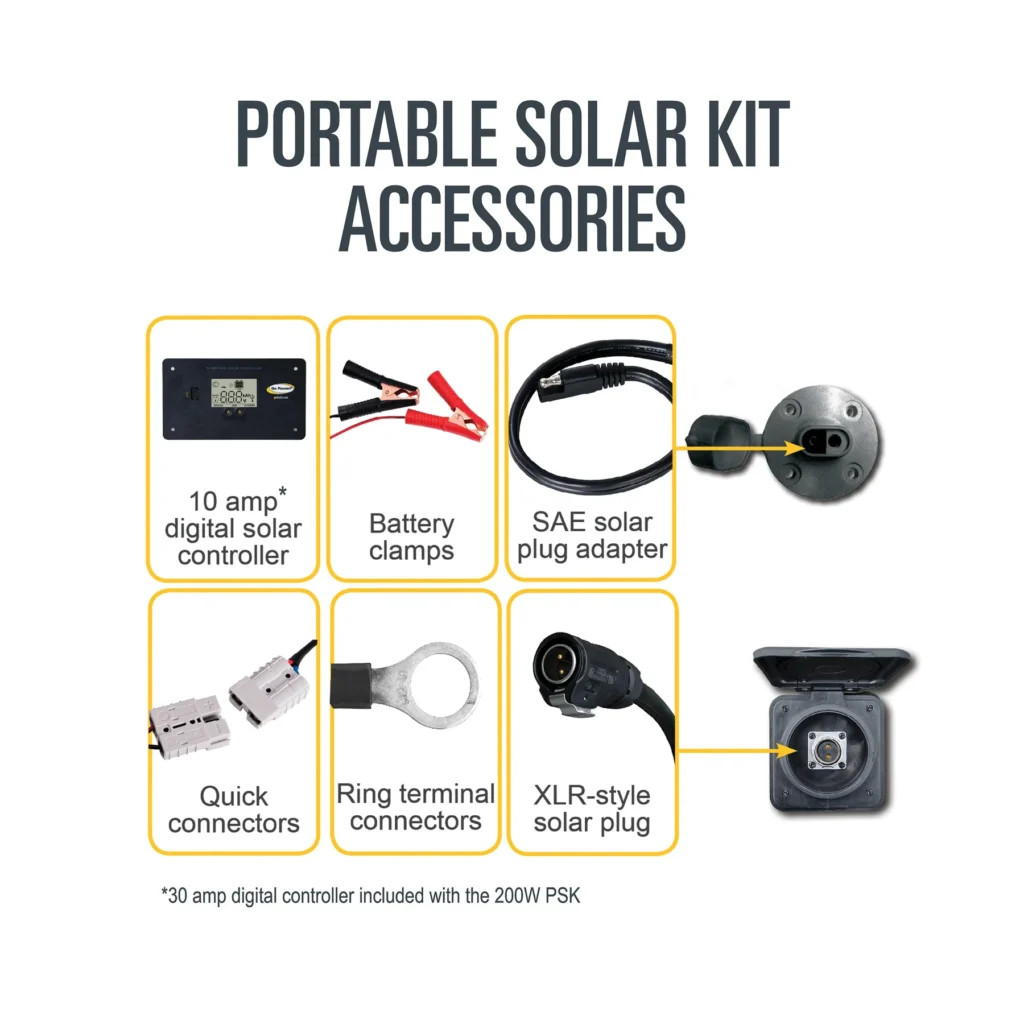
💬 User Review Highlight:
“Solid build and easy to use. I use it for my camper and boat — hasn’t let me down.”
— Verified Amazon Customer
🎯 👉 View Product on Amazon – 🔒 Secure link | ✅ EcoFlow-UK Seller | 🚚 Free Delivery Available
Best Off-Grid Solar Systems for Remote Cabins
Reliable Solar Solutions for Cabin Living:
Cabin setups demand durability and high energy capacity for extended off-grid living. Here are the top recommendations:
🚐 120W 12V Solar Vehicle Kit Duo
🛒 Check Price on Sunstore Solar | ⭐ Best for Dual Battery Charging in Vehicles
| Specification | Details |
|---|---|
| Power Output | 120W |
| Battery Compatibility | Charges two battery systems (e.g., engine and leisure batteries) |
| Daily Usage Support | Suitable for vehicles using up to 84Ah per day in summer |
| Kit Components | Solar panel, dual battery controller, mounting brackets, cables, and connectors |
🔍 Why Choose This Kit?
Dual Charging Capability: Efficiently charges both engine and leisure batteries simultaneously, ensuring all your vehicle’s power needs are met.
Comprehensive Kit: Comes complete with all necessary components for a straightforward installation.
Reliable Performance: Designed to support daily usage of up to 84Ah during summer months, making it ideal for extended trips.
Expert Support: Sunstore Solar offers free technical advice and a 30-day money-back guarantee for peace of mind.
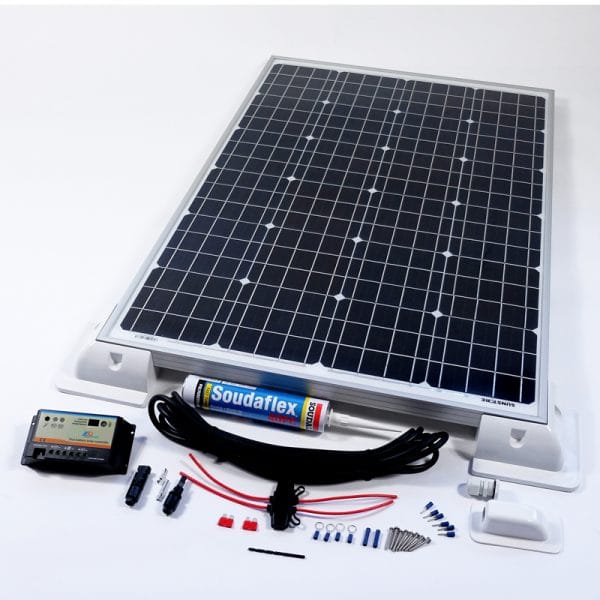
📦 What’s in the Box?
- 120W Solar Panel: High-efficiency panel to capture maximum sunlight.
- Dual Battery Controller: Manages charging to both batteries safely and effectively.
- Mounting Brackets: Securely attaches the solar panel to your vehicle.
- Cables & Connectors: All necessary wiring for a complete setup.
- Installation Instructions: Clear guidelines to assist with DIY installation.
💬 Customer Feedback:
“Installed this kit on my campervan, and it’s been fantastic. Both batteries stay charged, even on longer trips. Highly recommend!”
— Verified Customer on Sunstore Solar
🎯 👉 View Product and Pricing on Sunstore Solar – 🔒 Secure Purchase | ✅ Trusted UK Supplier | 🚚 Next Day Delivery Available
⚡ Sunstore Complete Off-Grid Solar Kit (1kW–3kW Range)
🛒 View All Kit Sizes on Sunstore | ⭐ Best for Full-Time Living, Cabins, and Remote Homes
| Specification | Details |
|---|---|
| Power Output | 1kW to 3kW+ (varies by package) |
| Components | Solar panels, batteries, MPPT controller, inverter |
| Weight | System dependent |
| Applications | Cabins, off-grid homes, farms, stables |
| Warranty | 5 years (product dependent) |
🔍 Why Choose This Kit?
- Tailored to UK Conditions: Designed for year-round reliability in UK and EU climates.
- Expandable Systems: Choose from multiple kit sizes based on your usage and needs.
- Professional Support: Sunstore offers full installation help and expert advice.
- Everything Included: Kits ship with all essentials—just install and go off-grid.
📦 What’s in the Box?
- High-efficiency solar panels
- Lithium or lead-acid compatible inverter/charger
- MPPT charge controller
- Deep-cycle battery bank (size varies)
- All connectors, fuses, isolators, and mounting kit
Goal Zero Yeti 1500X (Amazon Link)
| Specification | Details |
| Battery Capacity | 1,516Wh |
| Weight | 20kg |
| Output Ports | AC, USB, and 12V |
| Solar Input | Compatible with most panels |
| Portability | Integrated handles |
Features: Portable power station with large battery capacity.
Why Choose It? A versatile choice for remote and semi-permanent setups.
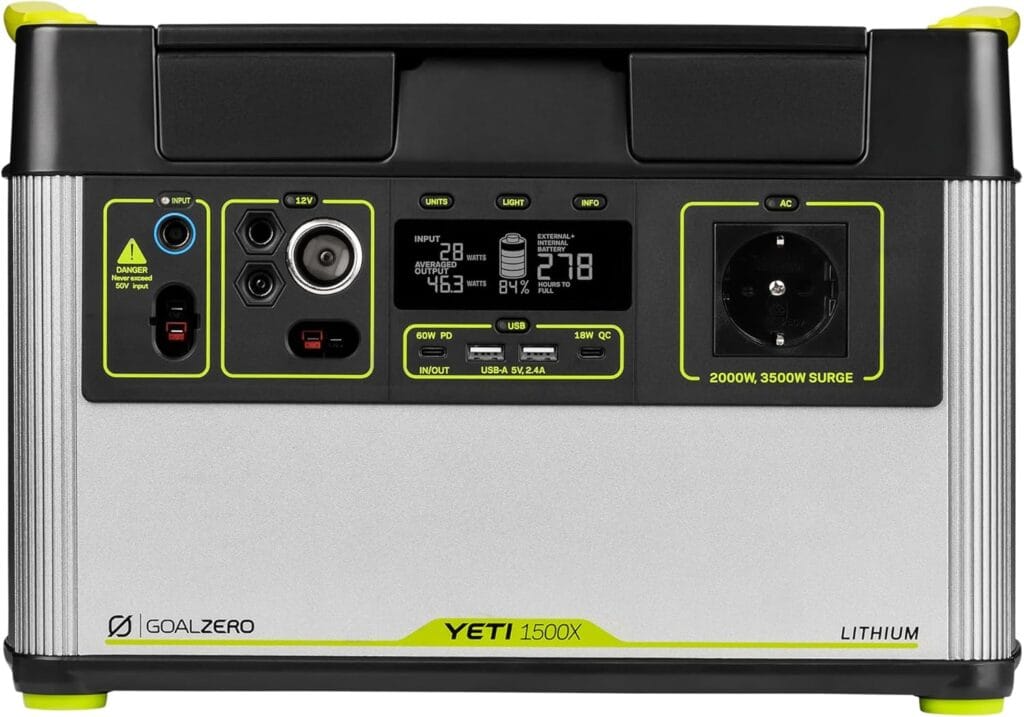
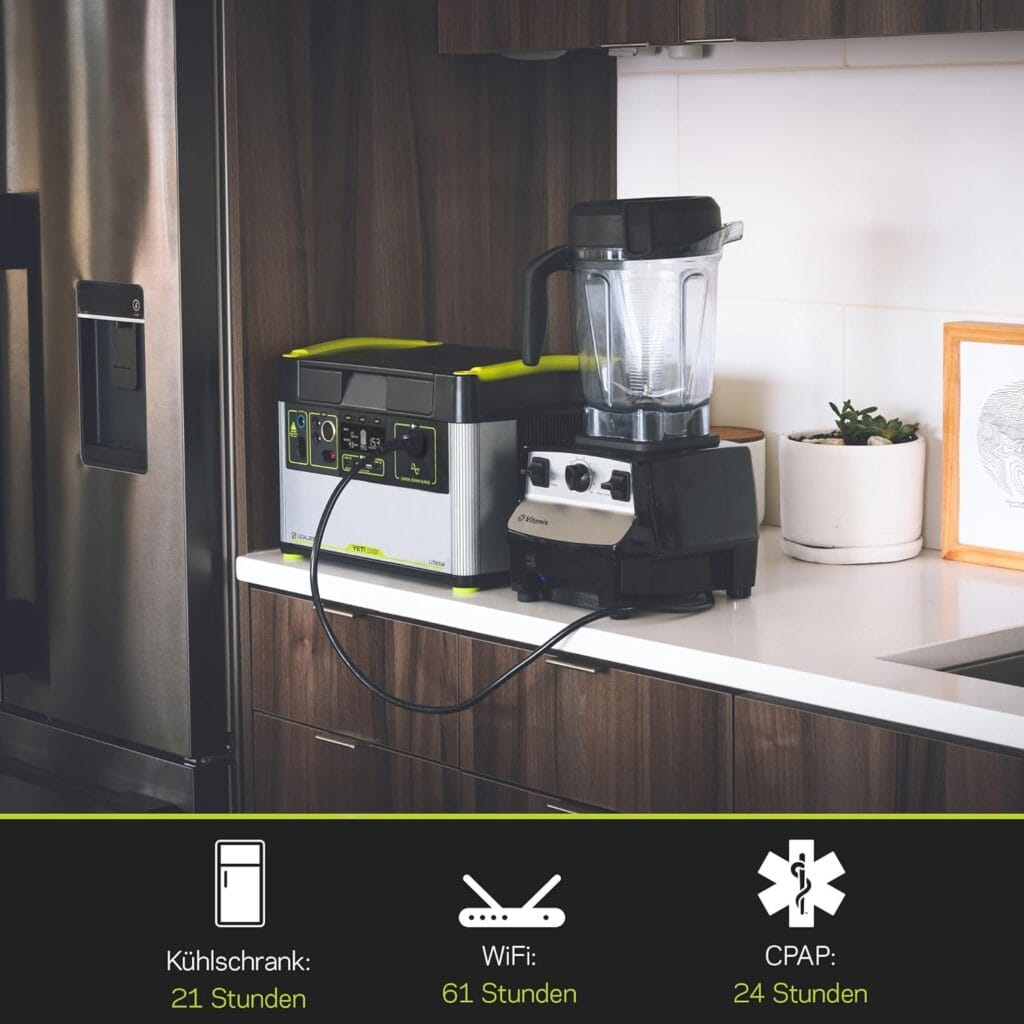
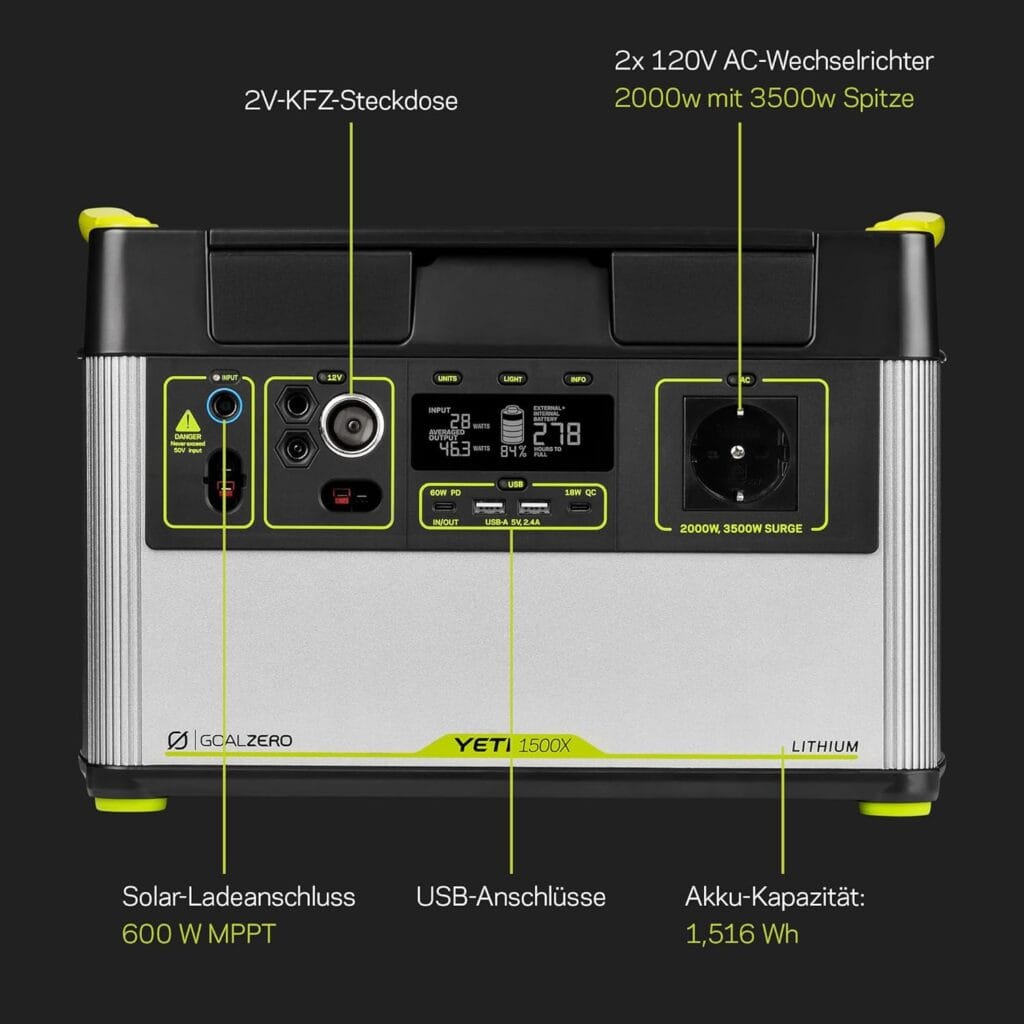
Best Off-Grid Solar Systems for Tiny Homes
Space-Efficient Solar Systems for Tiny Homes:
Tiny homes benefit from compact systems that maximize efficiency. These are the best options:
Bluetti AC200P Solar Generator (Amazon Link)
| Specification | Details |
| Battery Capacity | 2,000Wh |
| Weight | 27.5kg |
| Output Ports | AC, USB, DC |
| Charging Time | 3.5-4 hours |
| Applications | Tiny homes, RVs |
Features: Compact design with high storage capacity.
Why Choose It? Great for small spaces without sacrificing power.
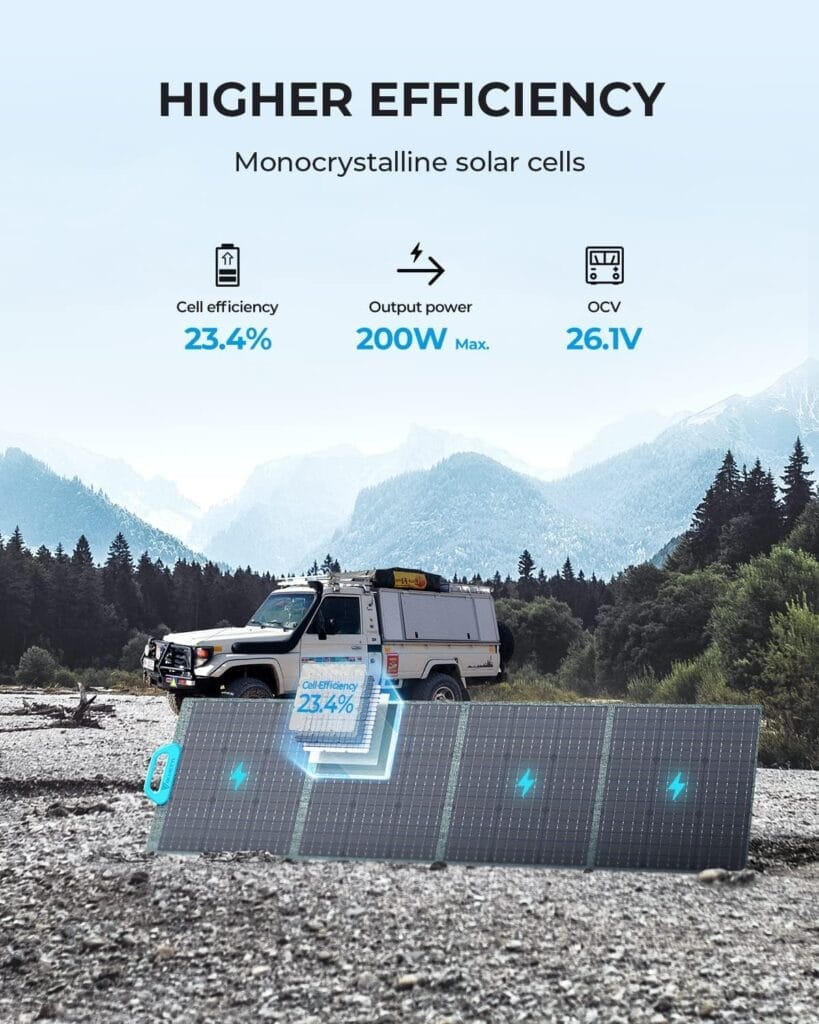
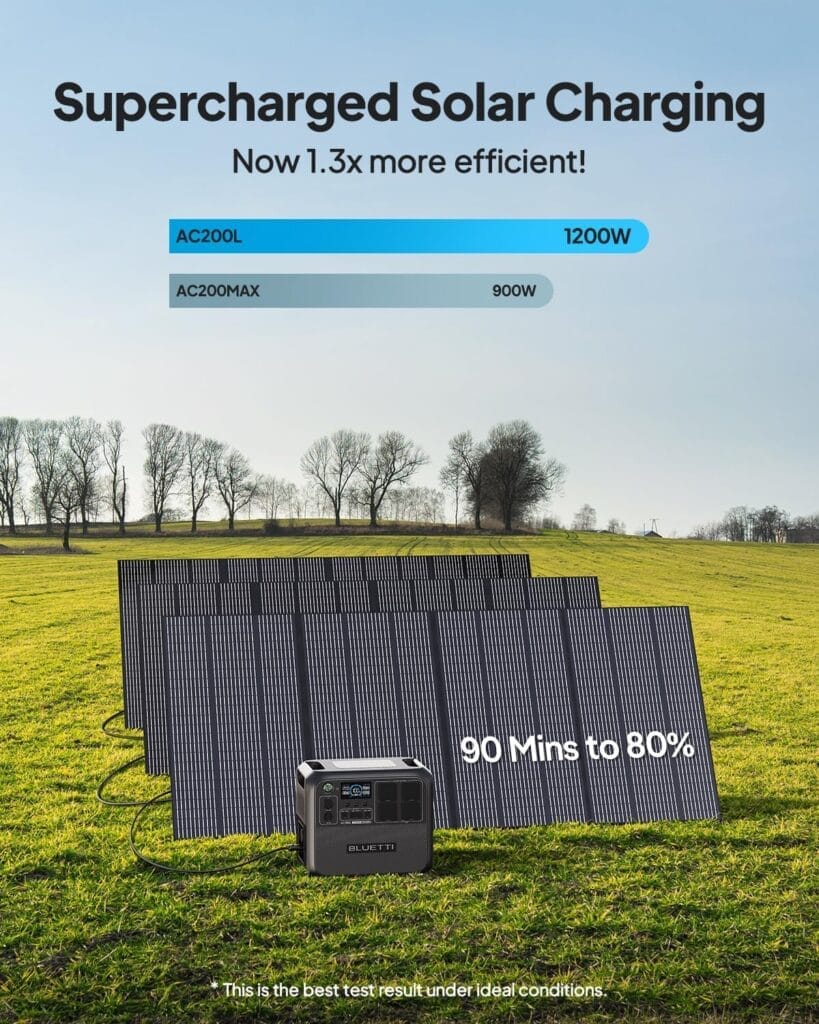
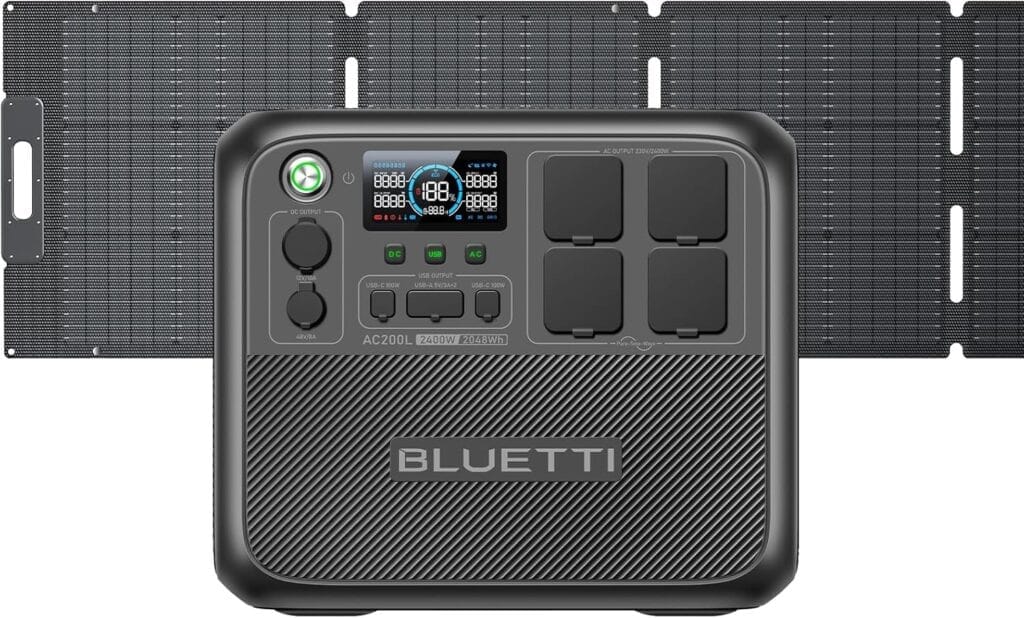
Renogy 3000W Inverter System (Amazon Link)
| Specification | Details |
| Power Output | 3,000W |
| Battery Compatibility | 12V and 24V systems |
| Efficiency | 90%+ |
| Weight | 15kg |
| Applications | Tiny homes, small homes |
Features: Efficient energy conversion and storage for small households.
Why Choose It? Tailored for minimalistic yet powerful energy needs.
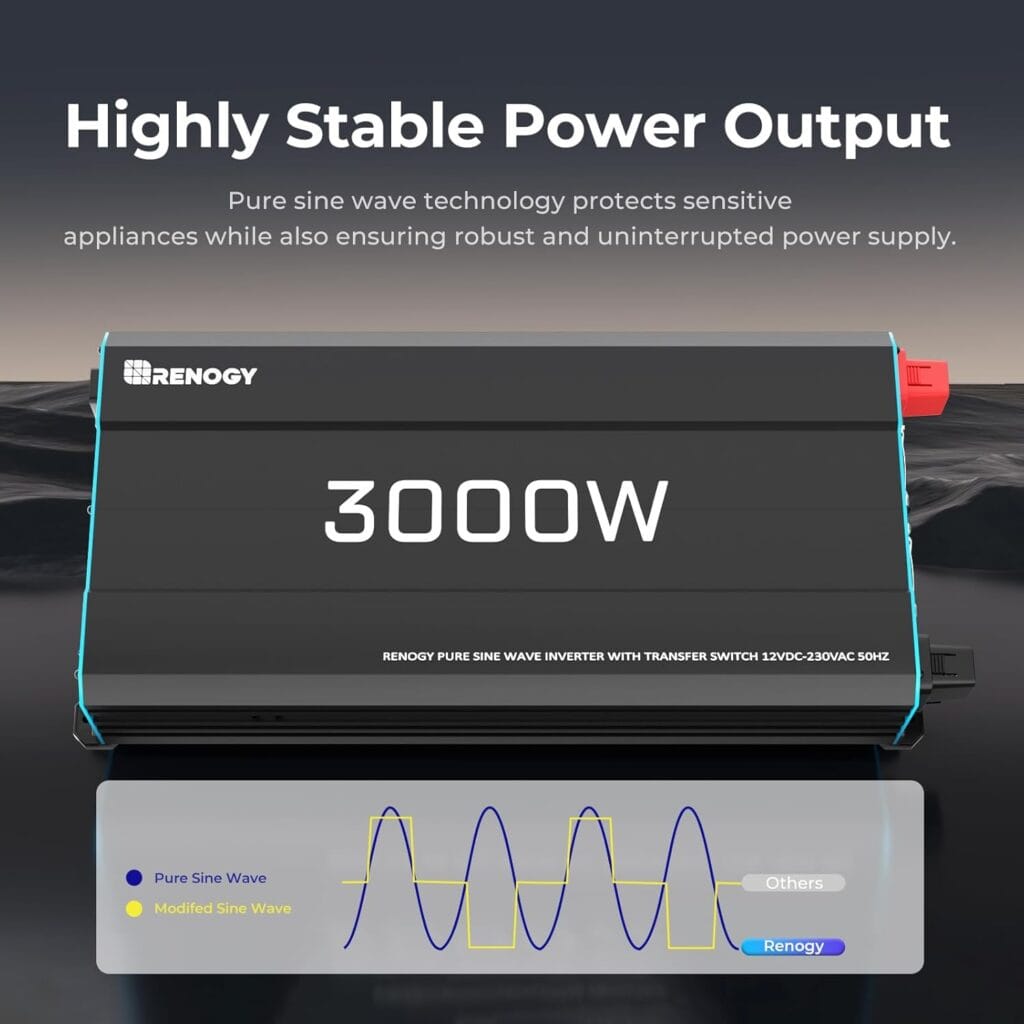
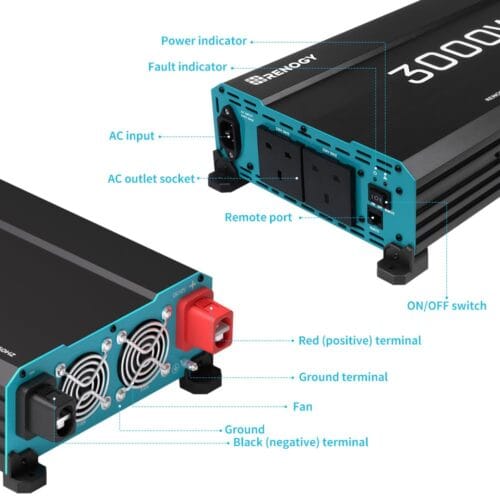
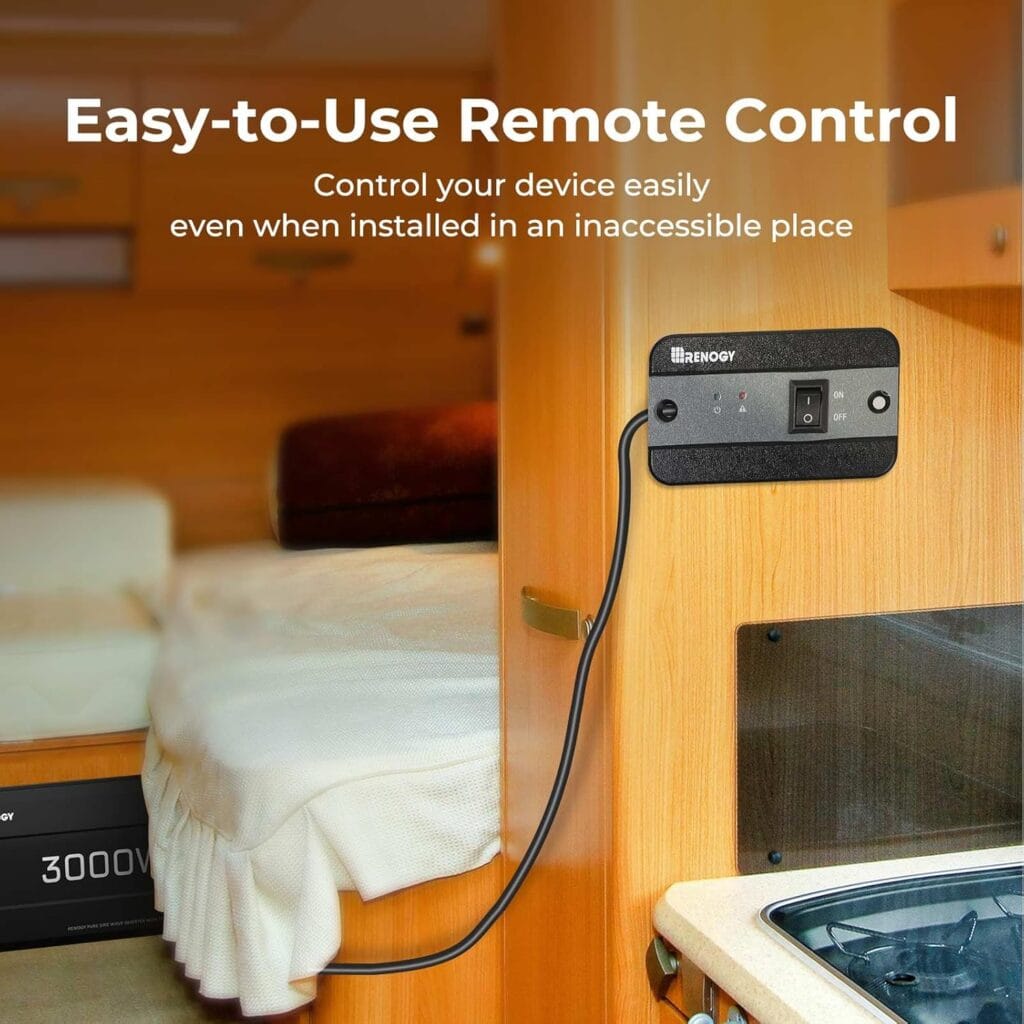
Eco-Worthy 1200W Solar Panel Kit (Amazon Link)
| Specification | Details |
| Power Output | 1,200W |
| Inverter | Included |
| Battery Capacity | 1,200Wh |
| Applications | Tiny homes, backup power |
| Warranty | 1 year |
Features: Affordable and designed for smaller spaces.
Why Choose It? A budget-friendly solution for tiny home enthusiasts.
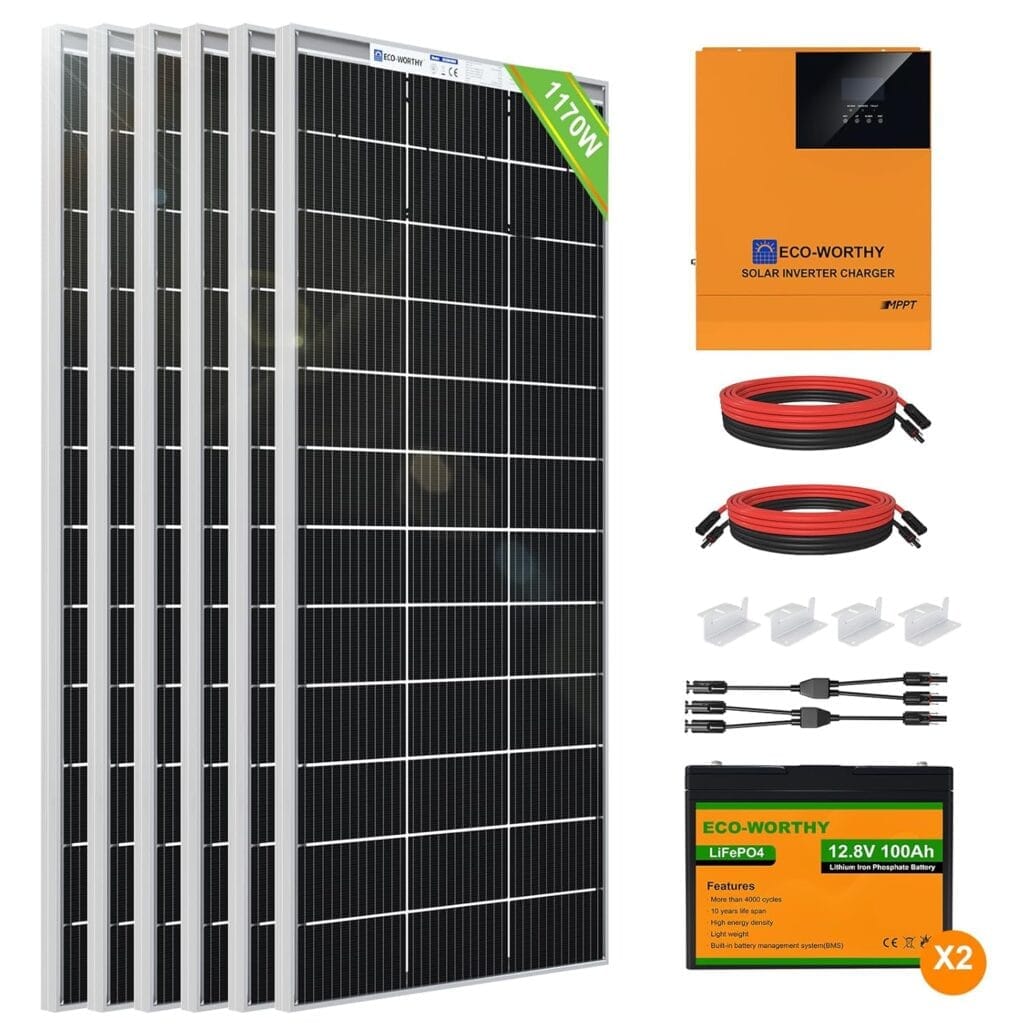
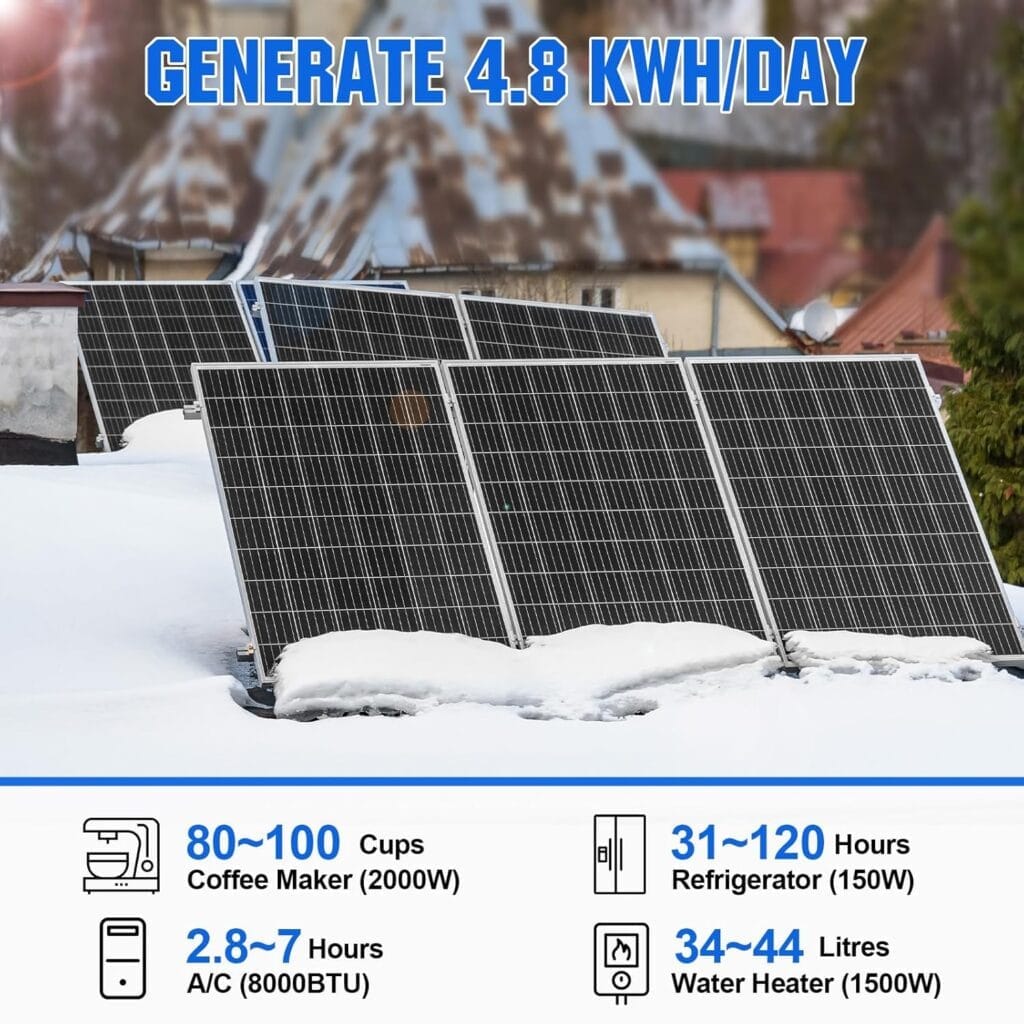
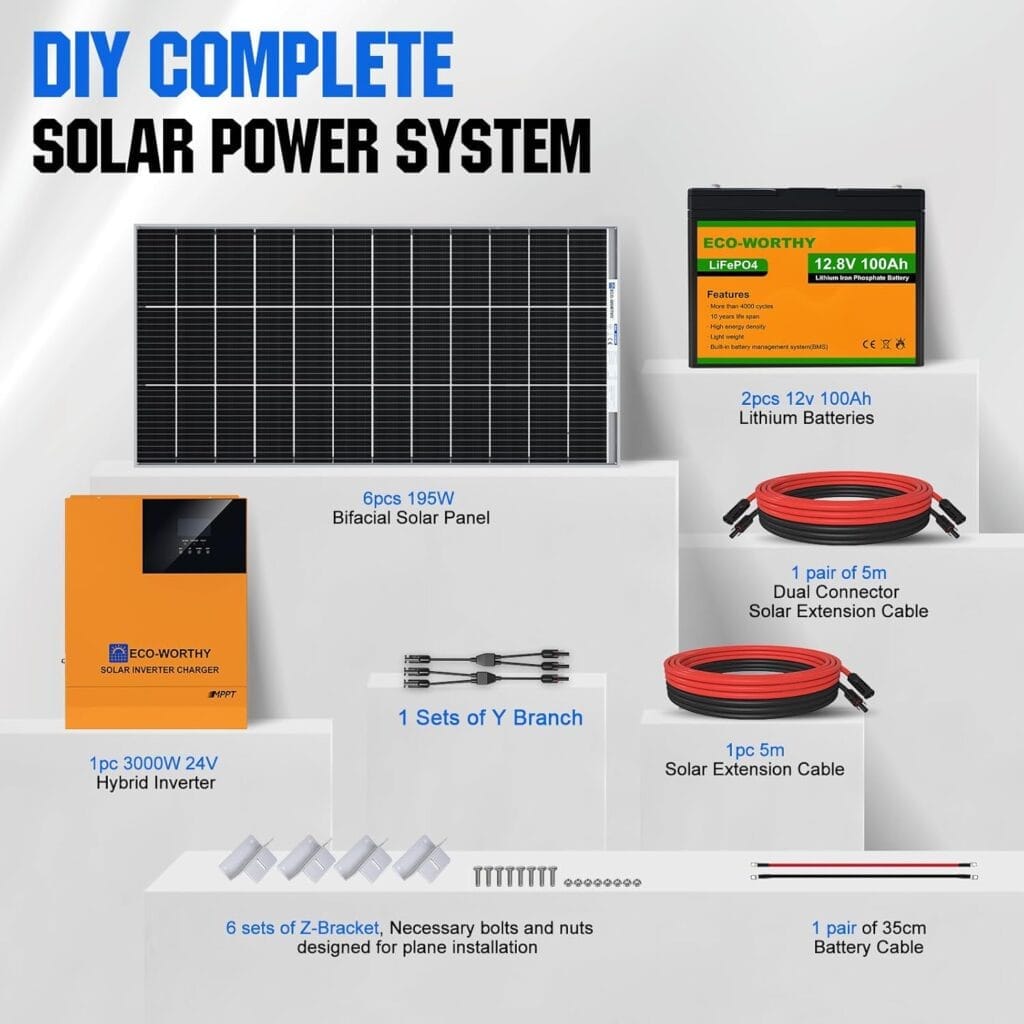
How to Choose the Right Off-Grid Solar System
Selecting the right system depends on your unique needs. Consider the following:
1. Energy Needs
- Assess your daily energy consumption in kilowatt-hours.
- Factor in appliances and devices you’ll power.
2. Space and Portability Requirements
- RVs and tiny homes need compact and lightweight systems.
- Cabins require durable and higher-capacity setups.
3. Budget and Long-Term Savings
- Determine your upfront investment capacity.
- Compare systems based on efficiency and reliability.
Checklist (Integrated): Calculate your daily energy use, decide on portability vs permanent installation, and choose a system with appropriate capacity and features.
Conclusion
Off-grid solar systems empower you to achieve energy independence, reduce your carbon footprint, and enjoy reliable power wherever you need it. Whether you’re hitting the road in an RV, living off-grid in a remote cabin, or optimizing energy in a tiny home, there’s a system tailored for you.
Explore the recommendations in this guide and find the right solar system to match your needs.
For a detailed look at off-grid solar systems tailored for the USA, explore our guide on the Best Off-Grid Solar Systems in the USA.

